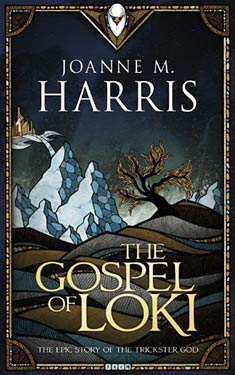Joanne M. Harris
Completed 6/24/2015, Reviewed 7/42015
3 stars
Loki is part of the Norse pantheon. He’s the trickster, called out of the fires
of Chaos by Odin, the thorn in the side of the other gods and humans alike, and
the instigator behind Ragnorok, the “doom of the gods”. For the first time, Loki tells his side of
the story. Told with contemporary
language and slang, “The Gospel of Loki” is a fun introduction into the Norse
gods. However, as a novel, it left me a
little disappointed.
Harris creates a fun, interesting character in Loki. Most of the book consists of tales from
mythology told from Loki’s point of view.
No matter how tragic the stories are, his perspective adds a dry, ironic
sense of humor. In every one of the stories,
he always finds a way to make it come out in his favor, more or less. Not all of the gods find this humorous
though. Eventually, it puts him at odds
with everyone, even Odin, his main benefactor.
Unfortunately, that’s the where the book falls apart for
me. I like Loki, but the nature of the
stories and the nonchalant narrative style kept me from developing a deep
relationship with him. So when his
lovers, children, and the other gods begin to turn on him, it didn’t have much
emotional impact. Without this, I found
it difficult to buy into his revenge game.
This book is quite short.
It makes me wonder if it was edited too heavily, leaving out deeper
character development. I often come
across books that I think could have used a hundred less pages. This is perhaps the first that I’d say could
have used a hundred more pages. Gaiman’s “American Gods” featured Norse gods
with much more depth despite relatively little page time. I’d recommend that over “Loki” if you want a
meaty novel. While this book is not
geared towards children, it reminds me of the “children’s versions” of the
Greek and Roman mythologies I read from Scholastic press as a kid myself. I remember the kid’s version of the Odyssey, thinking
it fun, rather than tragic. That’s how
this book left me. It’s a fun, light
read, but sorely lacked any emotional depth or detail. It mostly succeeded in making me want to take a
course on the Poetic Edda. I give it three out of five stars.

No comments:
Post a Comment